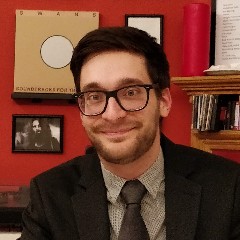You are not currently logged in. Please create an account or log in to view the full course.
Introduction
- About
- Transcript
- Cite
Human Nature, State and Society
In this course, Dr Alessandro de Arcangelis (University College, London) explores the links between the concept of human nature and ideas about the state, society and the economy in four key thinkers: Thomas Hobbes (1588-1679), John Locke (1632-1704), Jean-Jacques Rousseau (1712-78) and Mary Wollstonecraft (1759-97). In the first lecture, we look at the importance of human nature in some key political documents (e.g. the US Declaration of Independence) and think about two writers from the ancient world whose view of human nature fed into their ideas about what kind of political societies humans should form – Aristotle and Cicero. In the second lecture, we think about how concepts of human nature were transformed by the Scientific Revolution (c. 1543-1687) and its impact on political theory. And in the four lectures after that, we look at each of our chosen political thinkers in turn, with a focus on each case on their conception of human nature and their view on the kind of government we should have.
Introduction
In the lecture, we provide an introduction to the idea that there are important connections between concepts of human nature and ideas about politics and government, focusing in particular on: (i) the importance of human nature in three separate political documents: the US Declaration of Independence (1776), the French Declaration of the Rights of Man Rights of Man and of the Citizen (1789) and the European Union’s Charter of Fundamental Rights (2000); (ii) the connections between human nature and idea about politics and government in the writings of Aristotle (Politics 1253a1) and Cicero (De Re Publica 3.22, De Legibus 1.18, 28); and (iii) the four thinkers that will form the basis for this course: Thomas Hobbes (1588-1679), John Locke (1632-1704), Jean-Jacques Rousseau (1712-78) and Mary Wollstonecraft (1759-97).
Cite this Lecture
APA style
de Arcangelis, A. (2023, September 01). Human Nature, State and Society - Introduction [Video]. MASSOLIT. https://massolit.io/courses/human-nature-state-and-society/the-impact-of-scientific-revolution
MLA style
de Arcangelis, A. "Human Nature, State and Society – Introduction." MASSOLIT, uploaded by MASSOLIT, 01 Sep 2023, https://massolit.io/courses/human-nature-state-and-society/the-impact-of-scientific-revolution
Lecturer

